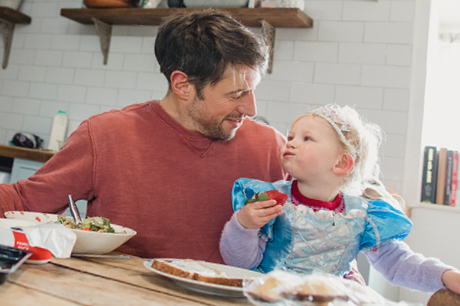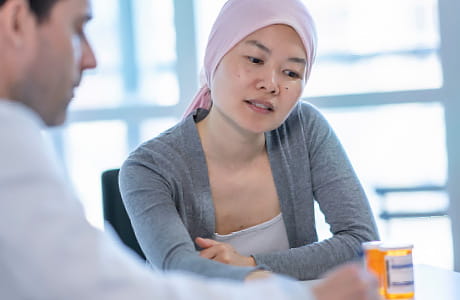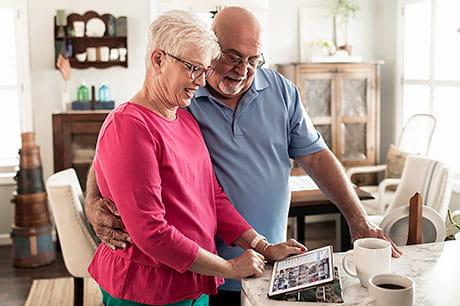Colorectal cancer is on the rise in young adults
You may need a colonoscopy sooner than you think.
Colorectal cancer doesn’t just impact older people. In fact, it’s becoming more common in adults under 50.
Over the past few decades, rates of colorectal cancer have been on the rise in younger adults. And if you’re under 45, a colonoscopy probably isn’t on your radar. Having one early might be a good idea. Here’s why.
Why are cases rising?
Colorectal cancer isn’t just being diagnosed in adults over 50 anymore.
“According to a study by American Cancer Society researchers, cases of colon and rectal cancer have been increasing by 1 to 2 percent each year among adults ages 20 to 39,” says Duane Deivert, DO, gastroenterologist at Geisinger Wyoming Valley Outpatient Specialty Center.
That means someone born now has a greater risk of developing colorectal cancer than someone born 10 years ago. “As many as one in five people diagnosed with colorectal cancer are between the ages of 20 and 50,” Dr. Deivert says. Cases also appear to be rising more in younger men than women.
While no one knows for sure, it’s believed these things are behind the rise in colorectal cancer cases in young adults:
- Having a sedentary lifestyle
- Eating processed foods
- Excessive alcohol consumption
- Smoking
- Obesity
Other potential causes include:
- Being African American
- Environmental factors like air quality
- Imbalances in your gut biome
- Eating a low-fiber diet
- Exposure to certain chemicals
What are symptoms of colorectal cancer?
In the early stages of colorectal cancer, you might not have any symptoms. Or you might have only minor symptoms. You may notice minor changes in your bowel habits, like constipation or diarrhea. You might also have:
- Rectal bleeding or blood in your stool
- Persistent cramping, gas or abdominal pain
- Feeling that your bowel doesn’t empty completely
- Unexplained weight loss
- Weakness or fatigue
And because those symptoms can be common and attributed to other things, you (and your healthcare provider) are not thinking about colorectal cancer.
That means because colonoscopies aren’t recommended until age 45, your healthcare provider may not order one. But, if you're having symptoms (and they’re not going away), a screening is a good place to start.
“Many people with colorectal cancer don’t notice symptoms until the late stages of the disease,” says Dr. Deivert. “That’s why early detection and prevention are key.”
How to prevent colorectal cancer
Making small changes to your everyday life can make a big impact on lowering your risk. Not sure where to start? Consider trying these.
Get screened
“Routine screenings help catch colorectal cancers earlier, when they’re easier to treat,” says Dr. Deivert.
Most colorectal cancers start as an abnormal growth on the inner lining of the colon or rectum, called a polyp. Regular screenings can help detect polyps. If your screening reveals any, they can be removed before they turn into cancer.
There are several types of screening tests for colorectal cancer, including colonoscopy and at-home screening tests. Talk with your provider about which one is right for you.
Eat a balanced diet
Be sure to include a variety of fruits, vegetables and whole grains. “These foods contain vitamins, minerals, fiber and antioxidants, which may play a role in preventing colorectal cancer,” says Dr. Deivert. Another good way to reduce your risk? Avoid processed meats.
Reduce alcohol consumption
If you drink alcohol, cutting back can help you lower your risk. Keep it to no more than one drink per day for women and two for men.
Stop smoking
If you smoke, your provider can work with you to find options to help you quit.
Move your body
Try to get at least 30 minutes of light-to-moderate exercise on most days. Brisk walking, swimming and lifting light weights are all good ways to get moving. Talk to your healthcare provider before starting an exercise program.
Maintain a healthy weight
Maintaining a healthy weight can help you lower your risk of developing colorectal cancer. If you’re not sure where to begin, talk to your provider.
Have a conversation
“The important takeaway is that young people can and do get colorectal cancer,” says Dr. Deivert. “Talking to your healthcare provider about your family history and potential symptoms can help you lower your risk.”
You and your provider can work together to decide if a screening is right for you.
Next steps:
3 foods that can raise your risk of colon cancer
Do you really need a colon cleanse?
Learn about GI care at Geisinger





